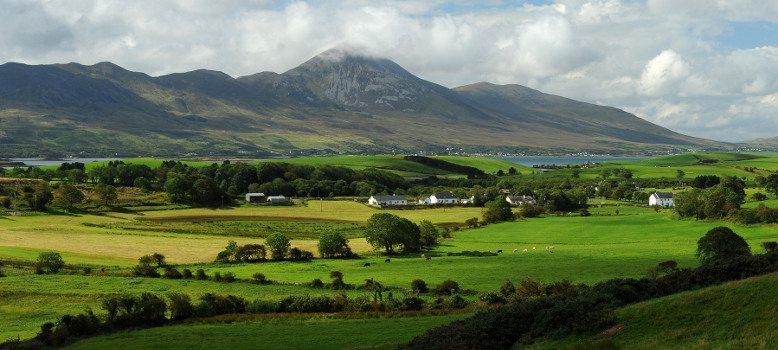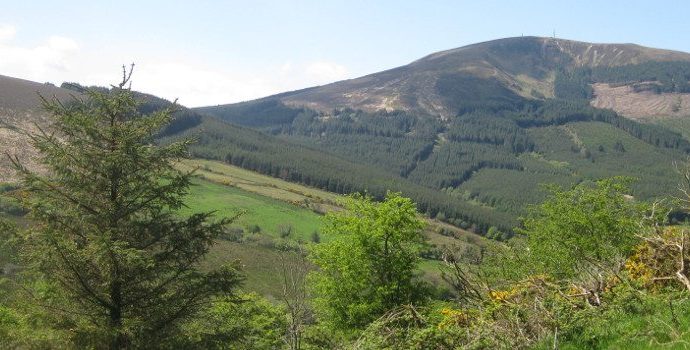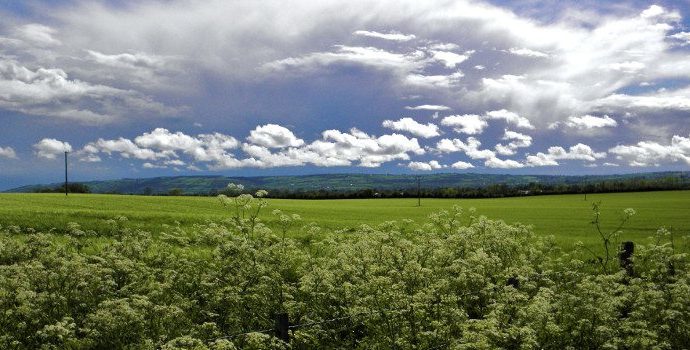Environment Reports
Environment Council Report May 2022

Activity since last National Council
- IFA made a submission to the Public Consultation on the draft River Basin Management Plan for Ireland 2022-2027 (enclosed). The following proposals were included:
- The RBMP must fully acknowledge the investment being made by farmers to protect and improve water quality, and ensure that time is given to accurately evaluate the effectiveness of these measures on improving water quality.
- It is critical that our scientists and policymakers better explain the complex nature of improving water quality so that stakeholders appreciate that immediate solutions should not be expected.
- There is ample evidence that a consideration of time lags should become standard in the design of water quality policies. By quantifying time lag the most effective management and mitigation practices can be designed, so expectations can be adjusted accordingly.
- Given the success of the Agricultural Catchment Programme and Agricultural Sustainability Support Programme in improving water quality in the PAA’s a mechanism to improve the knowledge exchange from with the wider farming community needs to be pursued and financially supported.
- The development of a comprehensive financial strategy to support the implementation of measures in the RBMP including Accelerated Capital Allowance (ACA) schemes. In addition, new and innovative funding mechanisms outside of CAP should be considered that reward farmers for the wider eco-system services provided by their actions.
- The water quality monitoring regimes need to increase to improve both spatial and temporal resolution of the data to provide a more realistic assessment of the nitrate status of a catchment. In addition, the greater accessibility of data needs to be provided to facilitate statistical trend analysis taking account of both localised and seasonal weather impacts.
- Continued collaboration and improved knowledge exchange with farmers and advisors to optimise the use of inputs and support farmers to change practices to protect and improve water quality will be crucial.
- A more detailed plan is needed to outline measures in the Nitrates Action Plan and new Green Architecture in the CAP Strategic Plan that will deliver a 50% reduction in nitrogen loss.
- The proposed Nature-Based Solutions must be introduced on a voluntary capacity.
- There needs to be greater focus in the plan to financially support farmers to develop tailored a Nutrient Management Plan (NMP) for their farms. Mainstreaming the use of NMPs, while simplify the process for farmers should a key objective.
- IFA met with Minister Darragh O’Brien and Minister Malcolm Noonan to discuss IFA submission to the draft River Basin Management Plan (RBMP).
- IFA met with DAFM officials to outline concerns with regards the proposed measures in the Nitrate Action Programme (NAP) and to get an update on the derogation. At the meeting IFA commodity chairs put forward questions that required clarification from the Department.
- IFA presented at the Meath, Cavan, Mayo and Waterford County Executive meetings on Climate Action Plan and the NAP.
- IFA attended a number of meetings meeting with Teagasc, Tipperary Energy Agency and Tipperary County Council in regards to organising an Energy in Agriculture event which is due to be held in July 2022.
- IFA met with Minister Martin Heydon to discuss renewable energy on farms and solar energy in particular.
- IFA attended a number of meetings including; Irish Fertiliser Association, the Water Forum, ASSAP Farmer Consultation Group and the Greenway Stakeholders Group.
- IFA met with ESB and Eirgrid with negotiations and agreement discussions ongoing.
- IFA attended the meetings with Irish Farm Film Producers Group CLG (IFFPG) where a decision was taken, due to escalating energy and fuel costs associated with the war in Ukraine, to increase collection charges by €20 per tonne, with the minimum charge at bring-centres increasing from €25 to €35 per half tonne.
- IFA met with Waterford IFA, Wicklow IFA and Kildare IFA to discuss matters associated with Greenway proposals.
- IFA met with TII with negotiations and agreement discussions ongoing.
- IFA met with the Commission for Regulation of Utilities (CRU) to discuss issues with water charges, particularly in relation to the charge per connection. CRU agreed to examine the framework and the charge per connection and have sought information from IFA regarding concerns raised.
- IFA also met with Mayo County Councillors to discuss multiple meter charges from Irish Water.
- IFA made a number of submissions to Bord na Mona on the Draft Rehabilitation Plans for a number of bogs under the Peatlands Climate Action Scheme including:
- Timahoe Bog and Lodge Bog, Co. Kildare.
- Ballycon Bog and Cloncreen Bog, Co. Offaly.
- The Smart Farming programme is currently undergoing a review process of the resource efficiency assessments carried out from 2017-2021 in the development of an updated programme to be launched ahead of next year’s programme.
- A three-year vision for the programme has been developed and there are ongoing discussions with the EPA to finalise future vision and programme.
- The IFA Environment and Rural Affairs Committee met on the 23rd February and the 23rd March.
Any EU/COPA developments
- The European Commission will put forward a proposal for legally binding EU nature restoration targets.
- In relation to drained peatlands under agricultural use, the proposed Nature Restoration regulation sets a target to rewet approximately 25,000 hectares by 2030 increasing to approximately 115,500 hectares by 2050. The legally binding target under the proposed regulation for 2030 is less than the target set out in Ireland’s Climate Action Plan 2021 which aims to reduce management intensity (water table management) of 80,000 hectares on drained organic soils by 2030 but the 2050 target is higher.
- The proposed regulation points out that lack of financing and allocation of resources to restoration as a key failure in the EU meeting its 2020 biodiversity targets. It is vital during the development process of Ireland’s nature restoration framework, that the costs associate with restoration and the implementation of the restoration measures are clearly defined, and a budget to realise restoration ambition allocated. New funding mechanisms will be needed to achieve the targets and obligations of the implementing the proposed Regulation.
- In addition, the Government must ensure that any rewetting scheme for grassland on organic soils is voluntary, it covers the full cost of restoration and farmers are appropriately compensated for the substantial delivery of enhanced ecosystems services (carbon storage and sequestration, biodiversity enhancement etc.) to society. The earning capacity of the land as well as land value will be significantly reduced unless farmers are proper compensated for the benefits of restoration.
- On 5th April 2022, the Commission adopted the Industrial Emissions Directive (IED) proposals for revised EU measures to address pollution from large industrial installations. The proposals state that Member States shall take the necessary measures to ensure that installation that are (i) rearing cattle, pigs or poultry in installations of 150 livestock units (LSU) or more or (ii) rearing of any mix of the following animals: cattle, pigs, poultry, in installations of 150 LSU or more, must operate with a permit and those operations must comply with the operating rules.
- The relevant Best Available Technique (BAT) requirements take into consideration the nature, size, density and complexity of these installations, including the specificities of pasture-based cattle rearing systems, where animals are only seasonally reared in indoor installations, and the range of environmental impacts they may have.
- IFA attended a Working Party meeting on Environment on 28th March on Agri-plastics, carbon farming certification, the new criteria and guidance of the protected area designations and EU nature restoration targets.
Upcoming issues
- Ongoing discusses and representation with the Department on the communication of the new NAP and derogation.
- Preparation for panel discussion at the Climate Summit conference on 25th May.
- Smart Farming stand and attendance at the EPA Water Conference in Galway 18th & 19th May.
- Organisation of regional information events with Teagasc for TD’s & Senators on Signpost Farms.
- Development of reflection assessment proposal to review impact of Smart Farming programme.



